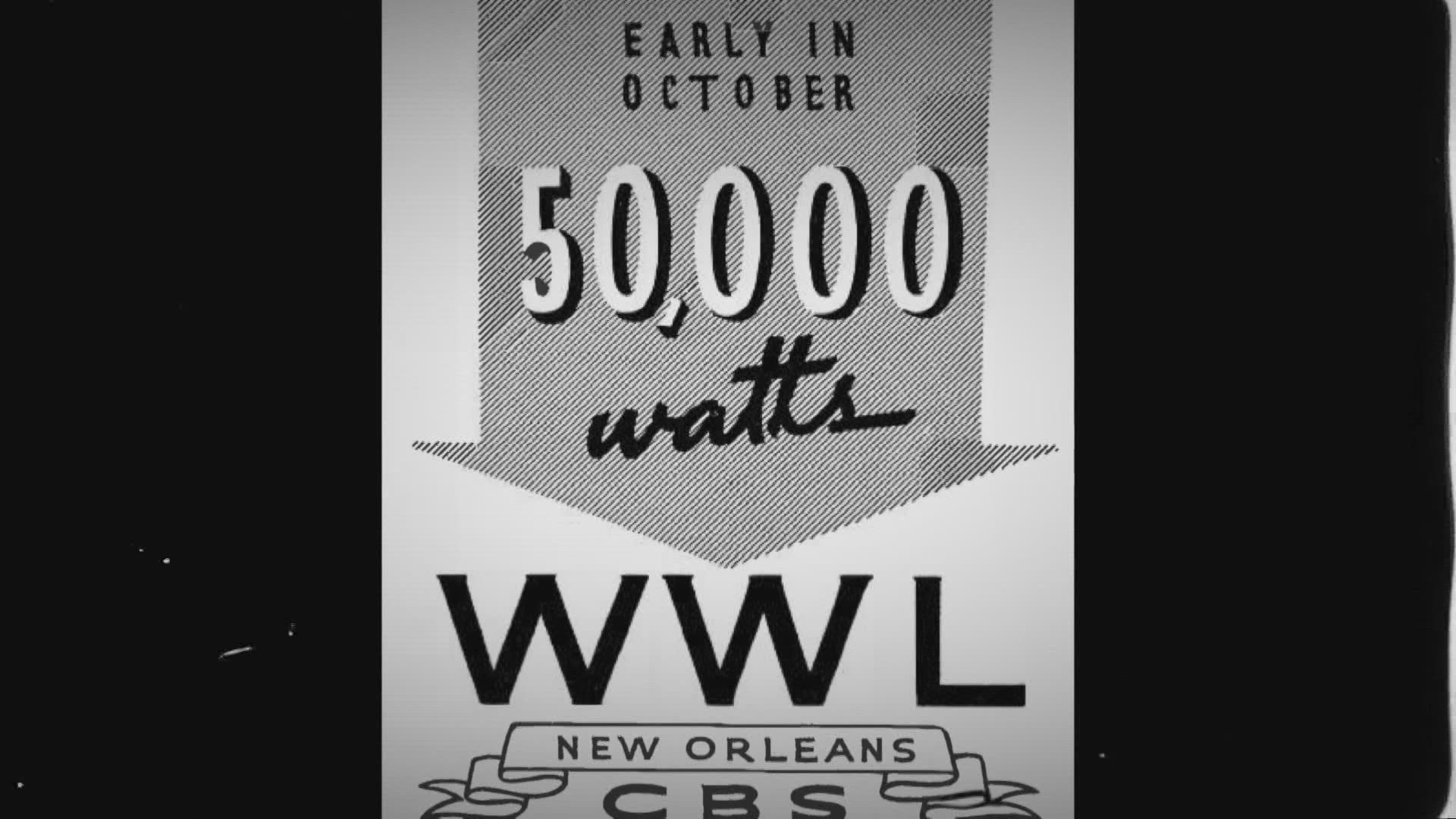NEW ORLEANS — It was 100 years ago, March 31, that WWL Radio first hit the airwaves.
And over the century, there were times when some people thought radio wouldn't last, like with the invention of TV, or when music videos were popular.
But today, the station is still thriving.
One hundred years ago the Jesuits had a vision.
“It really is a physics experiment of Loyola University that births WWL Radio,” explained Dominic Massa, author of “New Orleans Radio.”
And that vision launched and sustained well-known personalities' careers, and even saved lives.
“That first broadcast March 31st, 1922 was very simple by today's standard. Someone played some songs on an upright piano, and then the president of Loyola, Father Cassidy asked for money,” Massa continued.
But WWL radio quickly went from a fundraising tool, to national prominence. It was among those authorized to run at the highest power allowed for any AM station in the U.S.
"Fifty thousand watts clear channel. I mean, the blow torch of the south. You could hear us all over, all over the country pretty much, especially at night,” said Walt Pierce, a reporter and eventually news director at WWL from 1981 to 1996.
And people listened.
In studios from Loyola University to the Monteleone, then to the Roosevelt Hotel, where people nationwide were entertained by big stars performing in the Blue Room from the 30s to the 60s.
And there were the popular dawn busters, the morning show of choice before TV.
There was the popular and eclectic talk radio host Bob Ruby, where in the 70s announcing the time of day was even sponsored. So it was always "King Edward Cigar time."
“I had just been fired from working in a women's shoe store in Lakeside (Shopping Center), because I didn't do a very good job selling women's shoes,” remembers WWL talk show host Scoot Paisant.
He was just 19 when his father delivered a bill in person to Ruby. It was for promoting his show by sky writing. Ruby had just fired his producer and needed a new one. And on a whim, asked Scoot's dad if he knew any young responsible guys.
Now, 50 years later, Scoot is one of the stars introduced to us from behind the WWL mic.
“The live element in radio today is still my favorite part of this medium,” said Scoot.
Live and so intimate, it’s one on one interaction. Scoot remembers the best compliment he ever got. It was from a woman recounting rushing to the hospital to see her critically injured father.
“She wasn't even sure that her dad would be alive when she got there, and she said, ‘You made me laugh during that drive.’ And I thought, ‘If I've done that, as simple as that is, I've done my job,’” said Scoot.
Right around the time Scoot started there, WWL took on a higher profile job, becoming the voice of that new team playing at Tulane stadium. On the dial, 870 became the place we would vent to Hap Glaudi after a Saints loss. Later we'd vent through the cut out hole in our 'Aint's bags’ to Buddy D.
When Loyola sold WWL to a new company in 1989, Diliberto was nearly a casualty.
The new company’s managers had no clue about New Orleans accents or New Orleans characters, until then got a lesson from WWL Brand Manager Diane Newman.
“And the new management were like, ‘Who's this guy Buddy D?’” Newman remembers with a laugh. “‘Should we hire him?’ I said, ‘Yeah, yesterday.’”
And then years later, finally, a broadcast many thought they’d never hear. It was Jim Henderson, the Saints play-by-play announcer, who called the moment the Saints made a field goal that would send them to the Super Bowl.
Some goosebump-creating moments, etched in our souls, need no explanation.
“The radio call is what we remember. You don't remember the TV announcer. You remember the radio announcer, Jim Henderson, ‘Pigs flying and Hell is frozen over,’” said Massa.
“Everyone remembers Jim Henderson, ‘Pigs have flown. Hell has frozen over. The Saints are going to the Super Bowl,’” said Dave Cohen, News Director of WWL Radio.
In part two, something else we all remember.
“I went to the studio and I just put my arms around Garland (Robinette), because he broke down and cried. He was, he was a hero. He was a hero that lead to the recovery,” said Newman through tears.
Thursday night at 10 o’clock, we'll have more from inside the WWL newsroom.

